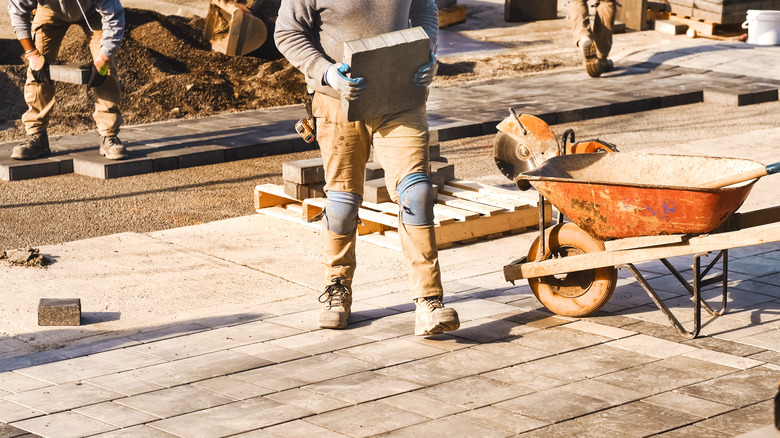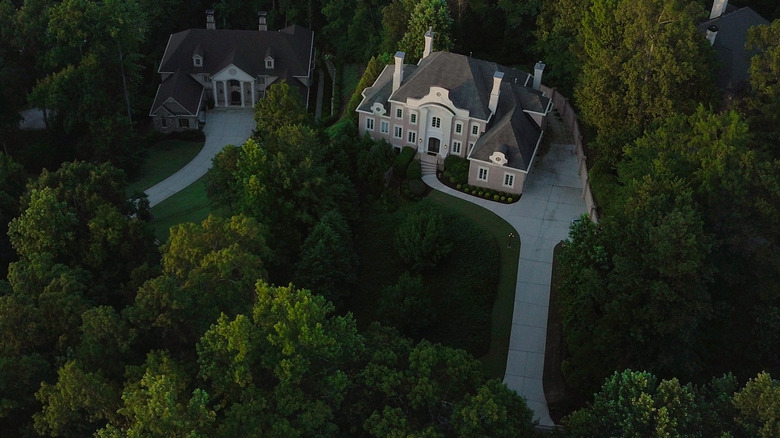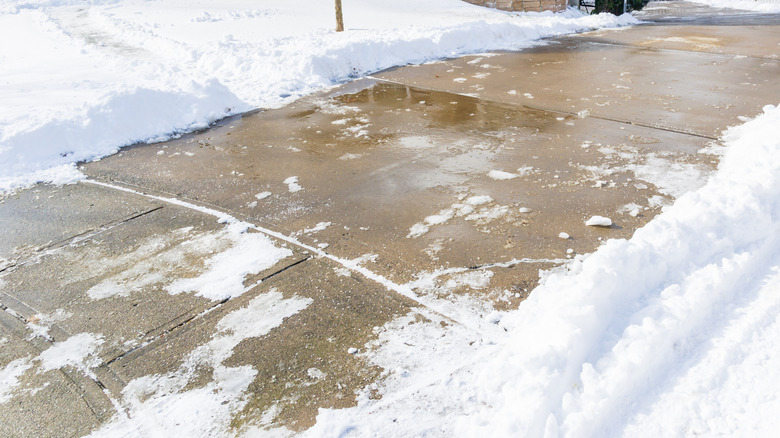How To Choose The Perfect Material For Your Driveway
Whether you're putting a new one in or replacing an old one, deciding on the best driveway material can be difficult. There are several options to choose from, and not only do they each bring a certain aesthetic, but they also come with their own durability and costs. This is likely not a project you're willing to take on yourself, so before you hire a professional, there are a few things you need to consider.
First, understanding your options is key to selecting to perfect material for you. According to Fortin Construction Inc., gravel is an affordable option, but it's not as aesthetically pleasing as others, and it requires you to apply more layers when ruts appear. Concrete is aesthetically appealing, but it is costly to install. It also doesn't hold up well when exposed to deicers.
Asphalt is cheaper than concrete but more expensive than gravel; however, it has a great aesthetic appeal and holds up well in cold climates. The only downside is that it will need to be sealed regularly to keep it healthy. Lastly, paver driveways are elegant and feel like a luxury addition to a home. Unfortunately, that luxury comes with a high price tag, long installation, and regular upkeep to prevent weeds from forming. Here's how to choose the best option for your driveway.
The length of the driveway and your budget
Finding out how much you're willing to spend on this project is the most critical aspect of finding the ideal driveway material (via Driveway Guide). How much you're willing or able to invest in this project will significantly determine which material you can or can not afford. So sit down and get clear about your budget with everyone who should be involved.
The length of your driveway will also come into play as you consider your budget. Depending on your funds, a short driveway might offer wiggle room for a fancier material. On the other hand, longer driveways require more material and labor and, therefore, often need the more affordable options available. Consider two materials for the driveway if you have an exceptionally long one. Maybe start with gravel at the beginning and turn to asphalt or concrete as you get closer to the house. This option gives you the luxury of a concrete driveway where you'll be walking around or where kids will play games while still saving money on the part where you're just driving.
Local environmental factors
The type of weather your climate has is also an aspect to consider when looking for the material for your driveway. For example, environments that experience heavy snow and ice might consider asphalt or gravel since concrete is susceptible to breaking and cracking when exposed to extreme temperatures (via Fortin Construction Inc.). Of course, this doesn't mean you can't have concrete in cold climates, but choosing a different option might save you money in the long run.
Howrey Construction says that asphalt can warp, bend, and wrinkle when exposed to extreme heat. The black asphalt worsens the situation and will heat a car to dangerous temperatures, so it's best to avoid this material altogether if you live in a region where it's hot most of the year. Alternatively, concrete is lighter in color and can even be dyed to an almost white hue to combat scorching temperatures. The lighter color is easier on tires, shoes, and paws.
Finally, locations where heavy rain falls regularly might want to stay away from gravel as a driveway option. Lots of rain can wash it away and create a huge muddy mess that will muck up a car and might even cause you to get stuck (via The Washington Post).


